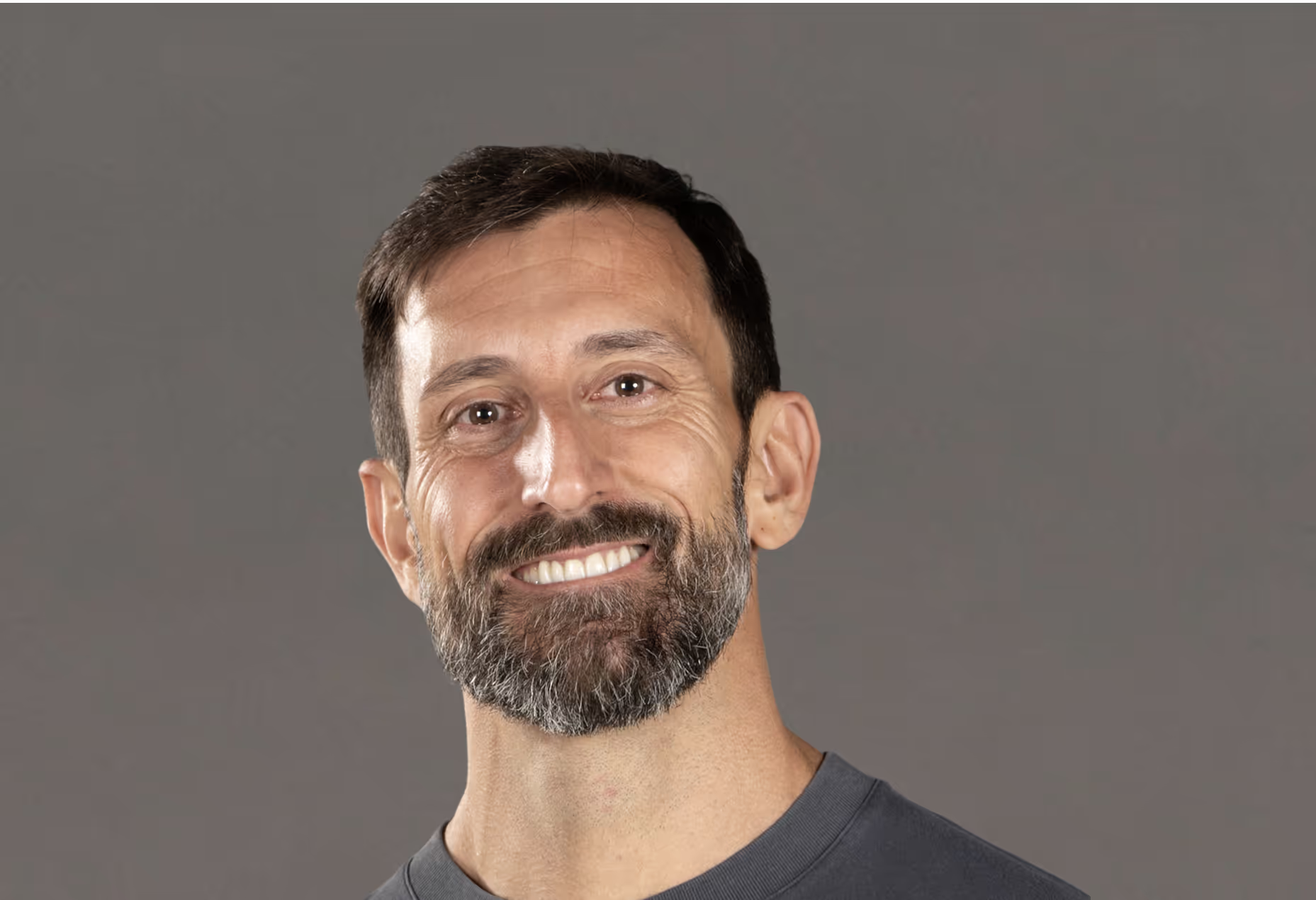
In Conversation with Fabio Bottan, Sr Messaging Specialist, Arelion
From the early days of telecom to today’s era of AI, fraud detection, and rich customer interactions, Fabio has witnessed the transformation of how businesses engage with customers. In this conversation, he shares his perspective on the evolution of business messaging, the challenges of operating globally, and the innovations shaping the future of enterprise communication at Arelion.
When you think of telecom, you might picture wires, satellites, and endless data plans. But for Fabio, a seasoned telecommunication engineer with extensive global experience, it’s all about the bigger picture, which is, how technology reshapes the way businesses and customers connect. Now at Arelion, he’s helping to globally develop business messaging, a space that has quietly become one of the most powerful drivers of digital transformation.
In this interview, Fabio shares his journey from the early days of telecom to today’s world of AI, fraud detection, and rich customer interactions. He opens up about what’s working, what’s not, and where the future of business messaging is headed. Ready to dive in? Scroll down and explore his insights.
You’ve been in telecom for years, now specializing in business messaging, what key changes have you seen in how enterprises approach mobile customer engagement?
I dare to say that customer engagement was not a big deal by the time where all telecom providers were controlled by the government. With lack of competition (and offers), the incumbent suppliers had minimum service levels with high engagement and very high margins. As an example I can mention Brazil (my home country) where telecom services were very expensive and customer support was minimal.
New technologies and the opening of the telecom market has started a whole new level of service delivery. MNOs started to expand their coverage, more international services, lower infrastructure costs and a clear commercial war to get more and more subscribers. ARPU (Average Revenue Per User) became a big thing where it was not something even disclosed before.
Of course the first steps were better services, better options (different data plans) and cheaper solutions but considering our recent history I believe the communication and direct interaction plays a key role in customer engagement. Being closer to the customer was a game changer in a world where technology allows quick developments so enterprises are promoting similar offers to the market. Support, fast response, clear and open communication channels count a lot nowadays.
From a carrier’s perspective, what makes business messaging such a crucial part of today’s digital transformation strategies?
I saw business messaging exploding around 2009/2010. That was a very important moment for the carrier business. Signaling carriers suddenly started to make big money thanks to messaging, which a few years before was unthinkable.
So, a part of the business importance to international carriers (still a big part of carrier’s results), messaging has helped the world’s digital transformation by accelerating its development a lot. I think everyone remembers how important business messaging was during COVID times, where messaging was not only about 2FA but it helped during critical cases like health notifications, coordinating vaccination, mental health with campaigns containing positive messages, etc. Messaging services, and here I’m considering all different channels, are part of our digital life like phone calls were during fixnet times.
Arelion operates globally, what unique challenges arise in delivering consistent messaging services across different regions and regulatory landscapes?
Indeed this is a challenge. As Arelion was already offering voice/data/roaming services in most of the countries where we operate Messaging, the existing internal experience was very helpful.
We are also part of the main telecom associations, e.g. GSMA, MEF, GLF, etc taking part in main discussions around regulation and best practices.
Strong traffic policies are applied to every single message processed by our platforms. Recently we have launched a module to detect different types of fraud campaigns for fast mitigation of multiple types of fraud. Arelion has also applied security policies to certain countries way before they become mandatory under local regulation.
In summary, challenges exist and we must work very closely to the Mobile Operators to be sure we deliver the best in class messaging services.
How do you see conversational AI and chatbots integrating with traditional SMS and RCS business messaging?
Chatbots and conversational AI are very exciting! Especially since we can train solutions to work on specific service fields. I still see these tools underestimated or misused by most enterprises. I don’t see a better way to start any type of customer communication than a well trained chatbot.
Fraud and spam are growing concerns in messaging, what’s working (and what’s not) in fighting A2P SMS fraud on a global scale?
This is not an easy question to answer as there are multiple types of fraud and multiple ways to deliver spam.
We see a big increase in phishing attacks, this is still growing and continuously increasing complexity. Recently during DEF CON 33 in Las Vegas, a very interesting presentation done by Mnemonic showed a big scam scheme involving phishing messages to steal credit cards and IDs information. So while spam is annoying, phishing can be extremely dangerous and it is getting astronomical proportions. What can work to prevent these issues:
- Select very well your messaging partner. Choose the carrier that works closely with Mobile operators, avoiding routes with multiple hops. Enterprises can refer to MNOs who would be the best partner for their needs. By being selective we can eliminate the bad players that are jeopardizing the business.
- Additionally, we should promote a more transparent market. We have enough technology to provide deeper details on how service providers manage enterprise traffic, so why hide these details?
On the other hand, some initiatives are not very helpful. There are many useless solutions in the market… but I prefer not to mention them here.
What KPIs do you believe companies should track to measure the true ROI of business messaging?
All KPIs related to customer engagement/retention are very welcome of course. Many KPIs depend on what kind of support enterprises expect from the new messaging service. Is it related to post-sales support? Is it related to marketing and promotional messages? Is it conversational?
At the end of the day, enterprises need to realize that business messaging will always be helpful, from the bakery next door to big techs or online shopping. I'm sure that when communication and interaction with final users/customers improves, then business tends to improve too.
Do you think RCS is finally ready for mass enterprise adoption, or are there still significant barriers?
We can no longer close our eyes to RCS. It took a long time to be a significant channel and finally it is. Enterprises should definitely consider it as one of the main messaging channels and invest in this model.
Lets not forget that RCS is just another channel. There are others that may be more relevant to a specific market, so the service provider must guide the enterprise to choose wisely while preparing its CPaaS strategy.
Many brands struggle to balance automation with human touch in messaging, any advice on getting this balance right?
I'm a big fan of LCDP technology. I think we can use workflows to design new automations and improve efficiency. Recently we have implemented an internal process and results are very good. It is simple, easy, and extremely effective. The possibilities are endless.
Think about a case where an enterprise wants to keep its website visitors at a certain level, lets say 100K visitors/day. With low-code technology we can create a workflow that will monitor this number and automatically trigger a messaging campaign with a “promo code” and URL so people can easily click and visit the site to see the deals. Easy, cheap and very powerful.
From your current work at Arelion, are there any innovative messaging use cases that have surprised you recently?
I’ve been working a lot on fraud cases, how to improve detection and how to mitigate them. The complexity behind fraud is increasing and MNOs must engage with right partners to help them prevent new cases.
Recently I saw a PR mentioning Vodafone Germany supporting public transport tickets over messaging. It shows that many Apps can be replaced by a very structured messaging service. I think we have enough Apps in our phones, so any additional service I can have over messaging is very welcome.
We should not forget the amount of innovation coming from IoT, especially using SMS to manage IoT devices. I know this is not new but it is a solution that I like a lot.
How do you see the future relationship between messaging platforms, carriers, and enterprises evolving?
Carriers have a unique position in the service flow, especially considering international services. Big enterprises will increase their service engagement with carriers and MNOs will understand the value of working with these partners. I'm not betting on carriers replacing the CPaaS providers but for sure the market share will increase for the carriers.

Rapid Replies:
If you could give one piece of advice to companies starting their first conversational messaging initiative, what would it be?
Look for the right partner! The right partner can guide you through the process of selecting the correct tools and channels for your conversational business. Also consider a good chatbot, tailored for your type of business.
Biggest myth about business messaging?
Good question! In my opinion there are few… Things like
- “SMS will soon disappear”
- “RCS will replace SMS”, or
- “This channel is fully secure”…
One book every telecom professional should read?
A year ago I read “12 Rules for Life: An Antidote to Chaos” by Jordan Peterson and it is beautiful how simple things can make you better. Better people will make better professionals, so despite not being book market related I believe everyone should give it a try.
Biggest productivity hack?
Following Arelion’s example, companies must have an outstanding delivery department. Having a delivery team with capability to work under very strict timelines improves productivity, satisfaction and customer retention.
AI in messaging: overhyped or game-changer?
Like any other technology, if well used it is definitely a game changer.
Go-to industry event or conference?
I love conferences! Catching up at one-to-one is the best way to understand the market reality. Industry events have too many commercial presentations with inflated numbers and, most of the time, fake stories - real life is not like that.
(Thank you, Fabio, for sharing your insights on business messaging and telecom. Your expertise in customer engagement, innovation, and global operations is inspiring. We appreciate your time, candid reflections, and vision for how messaging drives meaningful interactions and digital transformation.)
Arelion at a Glance:
Arelion, formerly Telia Carrier, is a leading provider of global connectivity services, owned by Polhem Infra, a Swedish investment company supported by some of Sweden’s largest public pension funds. Since its founding in 1993, Arelion has grown organically into a world-class network, with its Autonomous System AS1299 now ranked among the top global IP backbones. Its network stretches 77,000 km across Europe, North America, and Asia, connecting directly to more than 2,900 wholesale customers in over 129 countries, supported by over 450 local access partners.
Explore More



.png)

